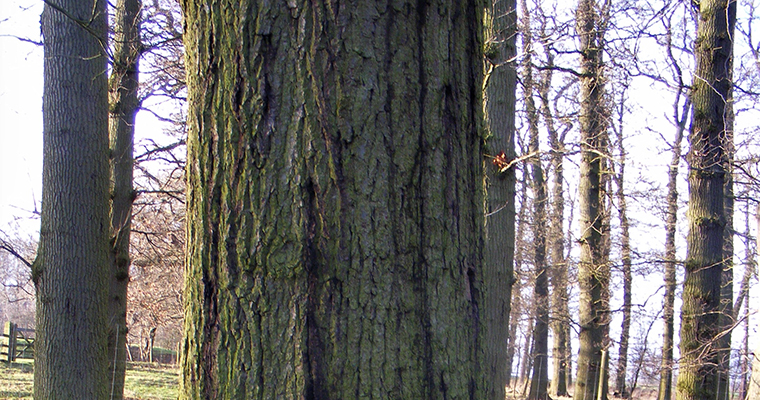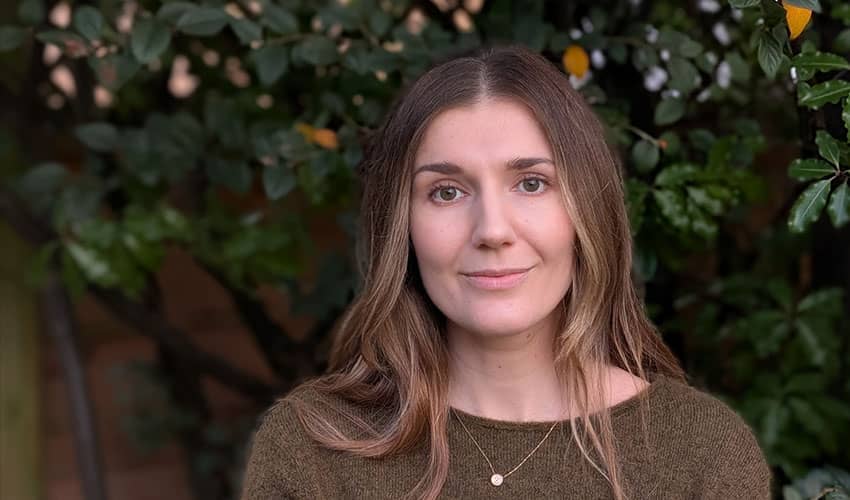UWE Bristol and partners receive £2m for collaborative research into oak tree health

A pioneering new project to investigate the health of our British oak trees has been given the go-ahead thanks to almost £2 million investment from the Biotechnology and Biological Sciences Research Council (BBSRC), Natural Environment Research Council (NERC), Defra and Scottish Government.
The project, named ‘BAC-STOP’ (Bacteria: Advancement of Control and Knowledge to Save Threatened Oak and Protect them for Future Generations’), will focus on Acute Oak Decline (AOD) - an emerging complex disease in which bacteria cause stem lesions on native species of British oak.
BAC-STOP aims to produce evidence to inform tree health policy and to develop practical measures for the management of AOD to enhance the resilience of British oak.
The project will involve a multidisciplinary team led by Dr Sandra Denman at Forest Research and includes the University of the West of England (UWE Bristol), Rothamsted Research, Bangor University and Aberystwyth University.
Dr Carrie Brady, who is a Postdoctoral Research Fellow at UWE Bristol and is working on the project, said: “There is still so much we need to learn about the ecology of the bacteria responsible for acute oak decline (AOD), as the majority of these species were new to science, and it's taken almost ten years to conclusively identify them.
“Understanding where these bacteria are found in nature and how they are transmitted between trees will aid in the future management of tree disease in the UK.
The project builds on previous research conducted by Dr Denman and her collaborators and addresses research priorities identified by the Action Oak partnership and outlined in the government Tree Health and Resilience Strategy.
Dr Sandra Denman, the project’s Principal Investigator said: “We are delighted to be awarded this grant to work on bacterial diseases of British oak and other native broadleaved trees.
“Currently our trees face an ever-increasing pressure from pest and disease threats and environmental stresses aligned with climate change. Through this project our aim is to help boost the resilience of oak and secure their future in our landscape.”
Acute oak decline is a combination of factors which cause oak trees to become stressed. Environmental stresses like soil conditions, drought, waterlogging and pollution can all impact the tree.
To improve silvicultural management of oak trees for disease prevention and resilience, long term field trials will be carried out to investigate the impacts of these environmental impacts on the susceptibility of oak trees to AOD.
The project will also examine whether the bacteria present in AOD bleeds (dark-coloured vertical fissures) on oak are found in bleeds on other broadleaved trees. This will help researchers to assess the risk of the AOD bacteria to other tree species.
Using cutting-edge science, the project will assess the transmission of bacteria in AOD by studying the behaviour of the beetle Agrilus biguttatus which co-occurs with AOD symptoms. By gaining a better understanding of the beetle’s interactions with AOD bacteria and oak trees, the aim is to resolve the controversy of its role in the spread of AOD and to inform practical management of the disease.
A range of stakeholders will be involved in the research to explore social knowledge, attitudes, and motivations to act on AOD, helping to design realistic options for the management of oak health for future resilience.
Related news

16 February 2026
UWE Bristol researchers awarded grant to explore impact of asset recovery on offenders
UWE Bristol academics have been awarded funding to explore of the impact of asset recovery on deterring offender behaviour and disrupting crime networks.

10 February 2026
Work by UWE Bristol lecturer features in Government’s National Cancer Plan
Work by a UWE Bristol academic has been included in the Government’s National Cancer Plan.

23 January 2026
On-demand minibus services beneficial in rural areas but face financial challenges, trials suggest
Trials of ‘demand responsive transport’ minibus services boosted connectivity for people in rural and suburban areas, according to a new report produced by UWE Bristol researchers.

18 December 2025
UWE Bristol professor appointed National Institute for Health and Care Excellence CEO
Jonathan Benger CBE, Professor of Emergency Care at UWE Bristol, has been appointed as the new chief executive officer of the National Institute for Health and Care Excellence (NICE).

17 December 2025
Findings revealed from first UK study into experiences of mothers who are survivors of rape pregnancy
UWE Bristol academics have revealed the findings of the first UK-based study of the experiences of mothers who are survivors of rape pregnancy.

11 December 2025
Social media influencer work is far more demanding than it looks, research finds
A study exploring the mental health impacts of social media influencer work has revealed that life online is far more demanding than it appears.

25 November 2025
UWE Bristol experts join film Q&A exploring music and melodrama
Academics will take part in the Cary Comes Home Festival, with a post-screening Q&A exploring music, melodrama and emotional storytelling in classic cinema.

17 November 2025
Urgent reform needed to support ambulance-delivered end of life care, study finds
More than three quarters (78 per cent) of paramedics sometimes fear doing the wrong thing when caring for people in the last year of life, new research has found.

13 November 2025
Bristol’s screen industry experiences “boom-and-bust cycle” after post-pandemic recovery, new research from UWE Bristol finds
New research from UWE Bristol provides detailed insight into Bristol's screen sector.

13 November 2025
New AI research to revolutionise animal welfare
A UWE Bristol research project will combine behavioural science and AI to create technology that understands not only what animals do, but how they feel.

10 November 2025
Lessons from Low Traffic Neighbourhoods will drive better public engagement, study finds
Lessons from Low Traffic Neighbourhoods have informed a new toolkit to improve engagement with the public on challenging local street issues.

06 November 2025
First-of-its-kind study aims to help more people spend their final days at home
A new study will explore how architectural design could support end-of-life care in domestic settings.






